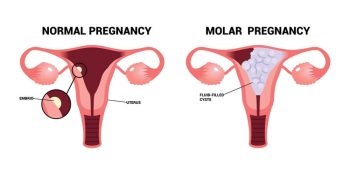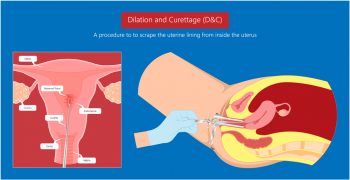Pregnancy is an exciting journey, filled with ups and downs, and sometimes unanticipated challenges.
One of these challenges can be a partial molar pregnancy – an uncommon complication that can affect future fertility.
Although it can be upsetting and difficult to deal with, it’s crucial to understand the condition thoroughly so that you can take the necessary steps to maintain your physical and emotional well-being.
In this comprehensive guide, we’ll look at what a partial molar pregnancy is, its symptoms and causes, the diagnosis process, the treatment options, and how to manage the aftermath.
We hope this blog post provides you with a better understanding of the condition and reassures you that you are not alone.
What is a partial molar pregnancy?
A partial molar pregnancy is a rare type of pregnancy where the fertilized egg develops into two sets of abnormal cells- an embryo with no or minimal development, and a cyst-like growth (trophoblastic tissue) that looks more like a tumor.

As a result, the pregnancy is not viable and cannot lead to a baby. This abnormal growth can cause complications such as bleeding and miscarriage, and, in severe cases, it can increase the risk of cancer developing in the uterus.
Symptoms and Causes
Partial molar pregnancies have similar symptoms to other types of miscarriages, such as vaginal bleeding, abdominal pain, and nausea.
However, there are some differences that may indicate a partial molar pregnancy, like a larger-than-normal uterus, noticeably high levels of pregnancy hormone (HCG), or cysts on the ovaries.
Partial molar pregnancies happen when the egg is fertilized by two sperms instead of one, or, less commonly, when there is an abnormal number of chromosomes in the egg.

The result is a pregnancy that doesn’t develop as it should, leading to a partial or complete molar pregnancy.
Diagnosis
If your doctor suspects you have a partial molar pregnancy, they will carry out tests to confirm the diagnosis.
The tests may include a pelvic examination, ultrasound, blood tests to check hormone levels, and genetic testing of the removed pregnancy tissue to confirm the type of molar pregnancy.

A diagnosis of partial molar pregnancy can be distressing, but it helps to know that it is not your fault.
Treatment
The recommended treatment for a partial molar pregnancy is surgical removal of the abnormal tissue.
This is usually carried out through a procedure called a suction Dilation and Curettage (D&C).

After the surgery, your doctor will recommend follow-up appointments to monitor your recovery and check your HCG levels.
In some cases, chemotherapy may be necessary to treat or prevent cancer from developing.
This treatment usually follows a D&C, and your healthcare team will be there to provide guidance on what to expect during your recovery.
Managing the Aftermath
Coping with a partial molar pregnancy can be emotionally draining and challenging, but there are ways to manage the aftermath.
It’s important to understand that you may need time to grieve and process your emotions and that it’s normal to feel a range of emotions, including sadness, anger, and confusion.
Find support and resources that can help you cope with your loss, like support groups, therapy, or counseling.
It’s also essential to take care of your physical health by following your doctor’s recovery instructions, eating healthily, and staying active.

In conclusion, a partial molar pregnancy can be a challenging and distressing experience, but it’s crucial to have a good understanding of the condition to help manage the aftermath effectively.
Symptoms such as vaginal bleeding, abdominal pain, and nausea warrant a visit to your healthcare provider. The diagnostic process may involve blood tests, genetic testing, and imaging tests.
If you receive a partial molar pregnancy diagnosis, the recommended treatment is surgery followed by monitoring and follow-up for a period of time.
Further, support from friends, family, support groups, and counseling can help you process your grief.
Remember, you are not alone – many women have gone through the same experience and have successfully managed to build families.


